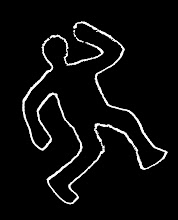
After wading through more than 75 submissions, the three of us have finally settled, after much deliberation, on a winner. Winnowing the list proved much harder than we expected: the quality of the submissions was excellent. Our shortlists attest to the difficulty we had selecting a winner: they are almost completely different. So, in the interest of full disclosure, we've decided to publish our individual shortlists. We want to thank everyone for submitting, and we hope that you had as much fun writing your Revenge-Lits as we had reading them.
For its style, humour, playfulness, voice, and the tightness of its presentation, we've agreed the the best of the RevengeLit submissions was:
The Eternal Remainder: by Charles Conley
The Shortlists:
Terry Griggs:
The Case of Poe Ethic Justice: by Albert Howard Carter III
Blind Judge: by Nathaniel Moore
Murder, Deconstructed: by Barbara Eliasson
Julie Wilson:
Special K to Kill by Karin Montin
A Rose by Any Other Name by Jackie Kingon
Writing Lessons by Lydia Ondrusek
Dan Wells
Blind Judge: by Nathaniel Moore
Career Best: by Nathaniel Ward
How To: by Fred Fawnicoly
Charles Conley will be receiving a $100 cash prize, publication in issue 77 of CNQ, and a Biblioasis catalogue of 40 (or so) titles. Congratulations to Charles and all of the shortlisted entrants!









